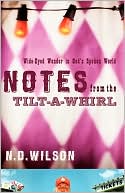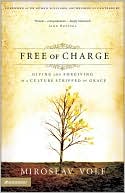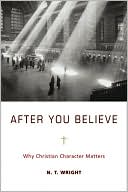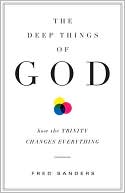"Dead flies make the perfumer’s ointment give off a stench; so a little folly outweighs wisdom and honor. A wise man’s heart inclines him to the right, but a fool’s heart to the left. Even when the fool walks on the road, he lacks sense, and he says to everyone that he is a fool. If the anger of the ruler rises against you, do not leave your place, for calmness will lay great offenses to rest. There is an evil that I have seen under the sun, as it were an error proceeding from the ruler: folly is set in many high places, and the rich sit in a low place. I have seen slaves on horses, and princes walking on the ground like slaves." (Ecclesiastes 10:1-7, ESV)
In our world of image and show where looks and talent make you powerful, the advice of this passage may seem rather lame. Character revealed in wise choices is what is at stake here. The thrust is basically that wisdom empowers and strengthens while foolishness weakens and debilitates. The Preacher lists four proverbs and then an anecdotal illustration. The first proverb is pretty clear. A little folly can spoil much wisdom. One foolish choice can undermine an entire life of wise choices. How many people do you know that have lived seemingly responsible, effective, and prudent lives, and then they are caught in an adulterous act or found with drugs? We see it in the headlines and in our circle of acquaintances. The few bad choices they have made completely undermine all the good they have done.
The second proverb adds that the natural direction of wisdom is to strength and that of foolishness is to weakness. In the ancient mind, the “right” was the position of power, might, and authority, and the left was the side of weakness and inferiority. The third proverb is more condemning. The fool can walk on the right road, and many do, but all will still know that he is a fool. The statement “he says to everyone that he is a fool” does not mean the fool boasts about his stupidity. It means that every time he opens his mouth it is clear to all that a fool stands before them. In other words, a fool cannot conceal his foolishness with good behavior. His mouth will always give it away. Thus, the fourth proverb, which encourages calmness and a refusal to make brash rebuttals and accusations (i.e. “do not leave your place”), promotes wise and guarded speech even in the face of royal persecution.
The text ends with a story about a foolish ruler who sets folly in high places and wisdom in low ones. When the Preacher says he has seen “slaves on horses, and princes walking on the ground like slaves” he means that he has seen the wisdom of princes in slaves and the foolishness of slaves in princes. Society is turned upside down. A foolish king has given authority to unworthy fools and poverty to worthy princes. The ones who can strengthen the kingdom have no power to do so, and those who ruin it have all the power. Foolishness leads to the left, to weakness.
We have a somewhat bizarre belief in America. It goes like this. You go to school, to college, you get a B.A. or even masters’ or even a Ph.D., and therefore you are on your way to making a tremendous difference in the world. Or you have athletic or musical talent, maybe you’re even incredibly attractive and popular, so you are on your way to a great life doing great things. That depends. Perhaps, you are on your way to a miserable life doing worthless things. Perhaps, your marriage is going to stink, you get depressed, you become an alcoholic, you hurt your children, and die in shame. Ph.D.’s, basketball skills, and nice legs aren’t going to change any of that. But character will. You can ruin your life and others through foolishness, and there are plenty of fools with Ph.D.s, or you can take the path of wisdom.









No comments:
Post a Comment